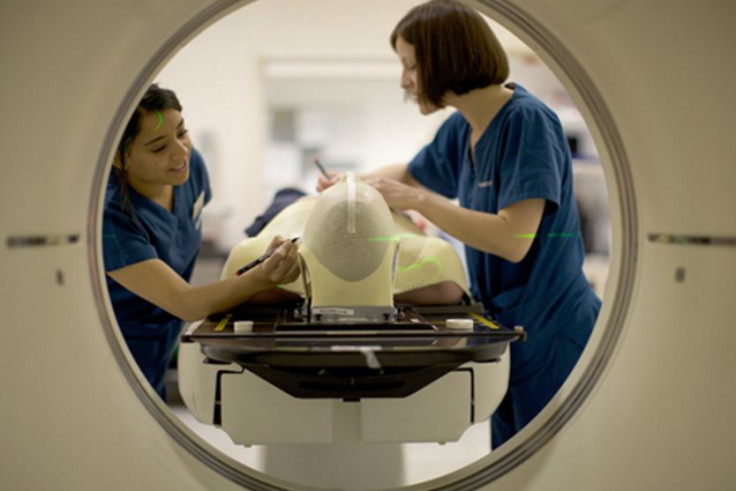First of its kind NHS developed AI tool speeds up cancer radiotherapy wait time
The new technology known as OSAIRIS is helping doctors reduce hours of waiting time for cancer patients as the time for preparing for the scan and referrals for radiotherapy gets streamlined.

The NHS has revealed how they are using Artificial Intelligence or AI to reduce patient waiting time for terminal illnesses. The new technology known as OSAIRIS is helping doctors reduce hours of waiting time for cancer patients as the time for preparing for the scan and referrals for radiotherapy gets streamlined.
This special technology has been used by the NHS in Addenbrooke where experts from the field developed the OSAIRIS specifically for the NHS.
The AI technology is working in tandem with specialists to plan the radiotherapy treatments and it has downsized the wait time by two and half times. This means that AI is processing the system two and a half times faster than the existing system.
This has resulted in treating more patients in a time-bound manner which has increased the chances of them getting cured. So far the NHS team at Addenbrooke has only used it for head, neck and prostate cancers but the system should work for all types of cancer.
How does OSAIRIS function?
The new system developed by Cambridge University and the NHS works by accurately drawing the picture of healthy organs and comparing it to the affected one before a patient goes for radiotherapy. Earlier doctors needed to devote time to this.
Such outlining by OSAIRIS is essential in radiotherapy as it helps to separate the healthy tissue around the cancer cells. This procedure is called segmentation and it prevents unnecessary killing of healthy tissue during radiotherapy.
Generally, doctors spend 20 to 180 minutes, that is, close to 3 hours to do this outlining for every patient. With AI this can be done easily.
Although it's done by the artificial intelligence tool, the decision-making power at every step lies with the oncologist. The oncologist controls the system and checks the scan once OSAIRIS completes the segmentation procedure.
The head of the research team at the Cambridge University Hospitals NHS Foundation Trust, Dr Raj Jena termed the job done by the OSAIRIS as background work. He revealed how the system does the work in the background so that the doctor can plan treatment and do the heavy lifting work.
Why is it important?
OSAIRIS is important in the healthcare system of Britain because this is the first time the country has developed a cloud-based AI technology and effectively integrated it into the existing system in the NHS. This is the first of many firsts for the NHS
According to Cancer Research UK, it usually takes 62 days to start treatment once a cancer patient is referred to a hospital and 31 days from the time the doctor-patient agrees on the mode of treatment. This results in innumerable delays by which time the disease spreads fast. Even in the case of urgent referrals which make it mandatory to see a specialist for treatment within 2 weeks, 90 per cent of the patients, nine out of 10 don't have a diagnosis in time.
With the help of AI technology, these bottlenecks could be removed and more lives would be saved with a timely treatment.
Dr Jena revealed that the NHS has already started developing the model for chest scans, meaning that AI can soon be used for breast and lung cancer treatment which are the most prevalent types of cancer in the UK
The neuro-oncologist stressed the importance of developing a brain model for potential usage in brain tumour treatment.
Microsoft helps to develop OSAIRIS
Dr Jena revealed how they are collaborating with Microsoft Research on this AI project to develop solutions for the long term. For this, Microsoft has opened their Project InnerEye software to develop AI and machine learning systems that can support the medical imagining community of the country and the world.
With the help of NHS AI Lab's £500,000 grant and the InnerEye toolkit researchers were able to develop the OSAIRIS system. The open-source software of the system collected data from previously treated patients and those who gave their permission for this research.
Underlining the importance of this, the General Manager of Microsoft Research Aditya Nori said that AI and the clinical expertise of the NHS have opened up new doors for the healthcare system which can develop a high-quality and safe care system with a human touch.
Tests for safety
To test the AI system, NHS carried out masked tests called Turing tests where doctors were asked to differentiate between an OSAIRIS-drawn organ outlining and a human expert drawn outlining. The system came out well as doctors couldn't differentiate the two.
Dr Jena said that this technology will be available across the NHS after 18 months of testing. Recently the government announced a £21 million fund for the NHS to use AI in a safe manner to speed up the treatment procedure.
The UK Health and Social Care Secretary, Steve Barclay mentioned OSAIRIS in a recent comment where he highlighted how the NHS has sped up radiotherapy twice the normal rate using £500,000 government funding.
© Copyright 2025 IBTimes UK. All rights reserved.




















